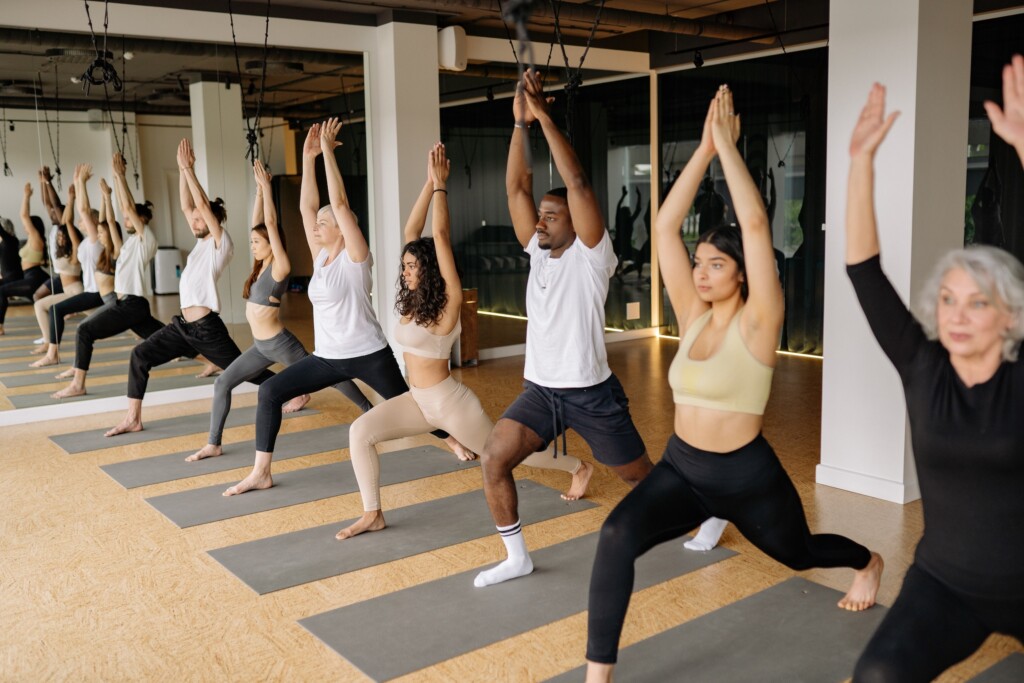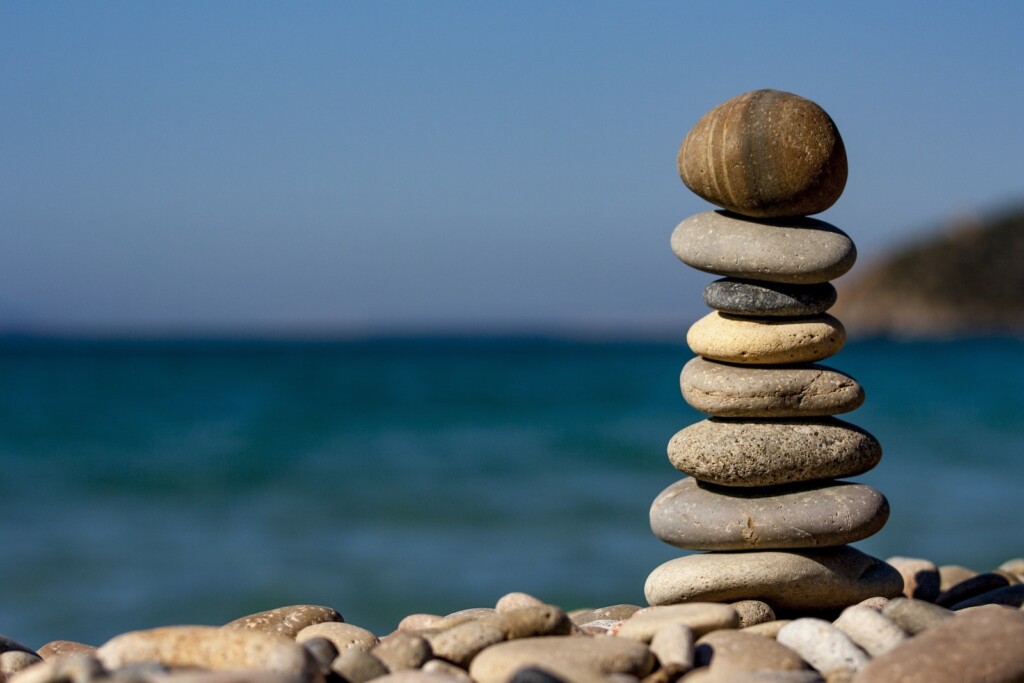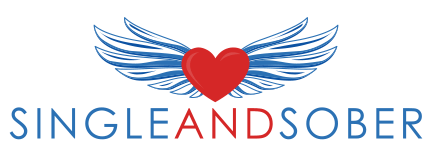
Wellness, presence and balance: file these under ‘words I didn’t know until I got sober.” When I was living hard, I was unwell, unbalanced, and avoided being in the moment by way of drugs and alcohol. These were the telltale signs that my life had become unmanageable. In recovery, I’ve made a full 180° flip. Wellness, presence, and balance are focal points of my life. Let’s talk about what these words really mean and how I cultivate them in my life today.
WELLNESS
What does it mean to be ‘well?’
In 2012, I went on a trip to Israel as part of a Birthright group. During our travels, we visited a Mikveh, a place women go to perform a ritual cleansing bath as part of their spiritual and religious practice. The women there spoke to us about finding the right partner and impressed upon us the importance of being spiritually, mentally, emotionally, and physically well.
Whoa.
I had never considered these different parts of myself, nor had I considered finding a partner who had similar values as they relate to these four quadrants. Throughout my recovery, I’ve learned A LOT about the type and level of care I need in these four areas, all different while being so very interconnected.
Physical
Caring for my physicality wasn’t something I did growing up or at any point during my using. I thought dancing all night on ecstasy counted as cardio. (I mean, I guess it did technically elevate my heart rate?) Nowadays, taking care of my physical body is something I do regularly and it can be involved!
Everyday I take actions like staying hydrated, getting enough rest, engaging in some type of movement, and eating mostly healthy meals. These are the baseline for how I care for my physical health. I see my doctors regularly, get check ups when I’m supposed to, have regular teeth cleanings, and address any injuries or illnesses as they arise. My physical well being was on the back burner throughout my drinking and using career. Today, I center my wellness and both my body and mind thank me for it!
Mental
Mental health is equally as important as my physical health and the mind-body connection is hella real. Over the last 7 years I’ve gone to group therapy, individualized therapy, seen a social worker for Cognitive Behavioral Therapy, a psychiatrist for exacerbated generalized anxiety and panic disorder throughout the pandemic, and an Internal Family Systems practitioner.
My mental health varies day to day, even hour to hour, and having many resources and tools to support myself is the best chance I have for coping with difficulties when they inevitably crop up.
Presently, I’m on medication to treat my anxiety and taking those meds is an act of caring for my mental health. Anytime I speak with a doctor, I let them know I’m in recovery and that I’d prefer non-narcotic medications which all my doctors have complied with and understood. This way, I protect my recovery and further my wellness by caring for my mental state.

Emotional
It’s said we emotionally freeze the day we first pick up a drink or drug and after years of numbing, the recovery process is very much intertwined with reconciling all of the emotions residing within us. It’s common to hear people in recovery describe themselves as highly sensitive and I’m no different. The first couple years, I spent time practicing naming my emotions in real time. It was like learning a new language.
As I’ve matured and grown, so has my emotional capacity. I’m able to hold multiple emotions at once, to process them without being outwardly reactive, and share candidly with others, bringing intimacy and authenticity to my relationships which feed my emotional well-being.
Other activities that support my emotional wellness are enjoying and creating art. Watching movies, writing, watching or performing stand-up comedy; anytime my creativity is piqued, my emotional body is thriving and jiving.
Spiritual
Spiritual growth is the foundation of my life and my recovery. Without willingness to grow spiritually, I’d continue being unwell in every area. To me, spiritual wellness requires five simple actions which I interchange depending on the day. Attending 12-step meetings, journaling, meditating, praying, and reading spiritual literature are the bedrock of my spiritual practice. I have other rituals I practice from time to time, like having moon ceremonies that help connect me with my femininity, or baking challah to connect me to my Judaism and my ancestors.
I’ve found spirituality to be much more personal than I ever believed and the only way to know it is to surrender to the path itself.
PRESENCE
As an alcoholic in recovery, it is my natural reaction to want to check out when life gets tough. To combat this reflex, I practice mindfulness meditation.
Feelings are hard! Adulting is hard! Things I can’t change are hard! Some days are just hard! Having a daily practice helps ensure that I turn inward and support the parts of myself that are struggling rather than reaching outward for something to numb the pain.
I’ve worked with a 1:1 mindfulness mentor for the last 7 years which keeps me on track, connects me with my inner world, my outer world, and the ways these two worlds interplay with one another. I became certified to teach mindfulness in early 2020 via Unified Mindfulness and am happy to speak with anyone who wants to know more.
BALANCE

The conclusive belief I’ve come to about balance is that it really comes down to discipline and grace, two things I completely lacked before entering sobriety.
When I lack motivation to do the next right thing, those are the moments when I need to enlist discipline and push myself. These are the times when “suit up and show up” or “one foot in front of the other” are the path to greatness.
Contrarily, when I’m running myself ragged, putting the cart before the horse, or tripping over my own two feet, those are the times I need to take a step back, breathe deep, and apply slogans like “easy does it” “one day at a time” or “keep it simple, sweetheart.” These are moments of grace, when I’m reminded that it’s progress not perfection.
Being balanced also means assessing what part of my life needs the most attention on any given day and providing myself with the appropriately applicable support. I have an arsenal of tools, but I’ve got to use them properly. You wouldn’t carry an umbrella on a sunny day and a snow shovel is useless in a hurricane. Balance means meeting life’s challenges with the proper tools at the times they’re needed.
—
Recovery is about so much more than putting down the drink, drug, or behavior. It’s about creating a new life abundant with wellness, presence, and balance. When I feel out of whack, I turn to other friends on the path for support, a good laugh, and a hot cup of coffee. We’ll never get it perfect, but together, we’ve got it good.
Pam Mahler is a Jewish American writer, humorist, and self-care enthusiast who is passionate about recovery, philosophy, and what it means to be human. She resides in Wayne PA with her partner, Adam, and their spirited tuxedo cat, Gumbo.
